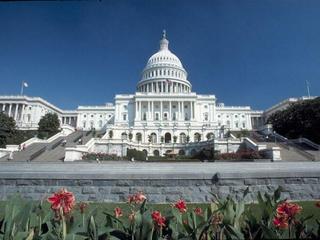Strange Bedfellows: Public Policy and the Private Sector
 Erroneously, many Americans believe that public policy and the private sector reside on opposite ends of the spectrum.
Erroneously, many Americans believe that public policy and the private sector reside on opposite ends of the spectrum.They couldn't be more mistaken.
The role public policy plays in business dynamics is far from an insignificant one.
One cannot understand certain investments and industries, for instance, without first understanding how their activities are inflected and shaped by things like deregulation.
Deregulation can be defined as the removal of government power in a certain industry.
The telecom boom, as has been heavily documented, was a direct result of the Telecom Deregulations Act of 1996.
Thank you, Mr. Clinton.
That act enabled local carriers to compete with Ma Bell, which had up until that point held a monopoly on the industry, limiting consumer options and chokeholding a supposedly free market system.
Deregulation was the antidote, promoting competition and removing barriers.
By 1999, 98% of homes had no choice in local service.
Passage of the Act finally gave consumers a long-deserved array of alternatives.
The airline industry underwent a similar transformation approximately 20 years earlier.
The Airline Deregulation Act was signed into existence by President Carter in 1978.
That one was momentous -- it removed government control from commercial aviation and exposed the passenger airline business to market forces.
The end result was lower fares, a wider set of route and destination choices, and barriers to entry that plummeted.
Quality of service is generally acknowledged to have declined, however.
Despite reduced quality control, the popularity of no-frills airlines & low-cost carriers such as Southwest and JetBlue indicates that most passengers prefer price over comfort.
The American consumer, responsible for 70% of our GDP growth, always has the last word.
Both the Telecom and Airline acts served, in the overall scheme of things, as a boon for both Providers and Users alike.
As such, it is clear that reduction or elimination of government power in a particular industry is something macro-oriented investors should never overlook.
Likewise, companies who are serious about their strategic planning cannot afford to ignore Capitol Hill.
<< Home